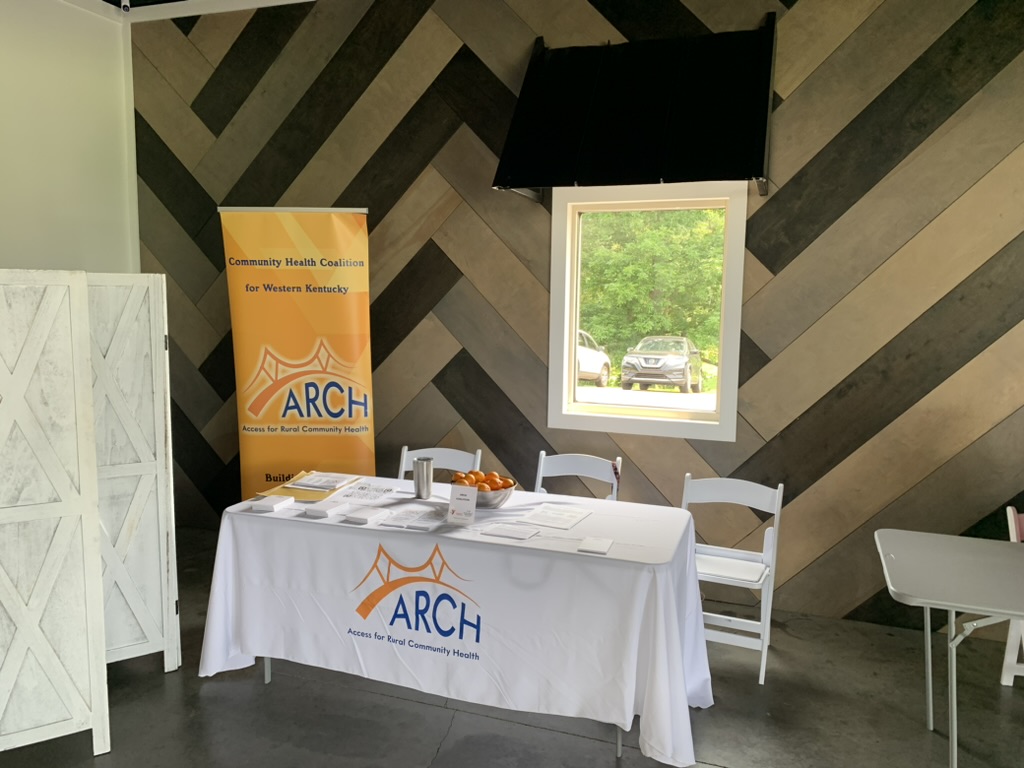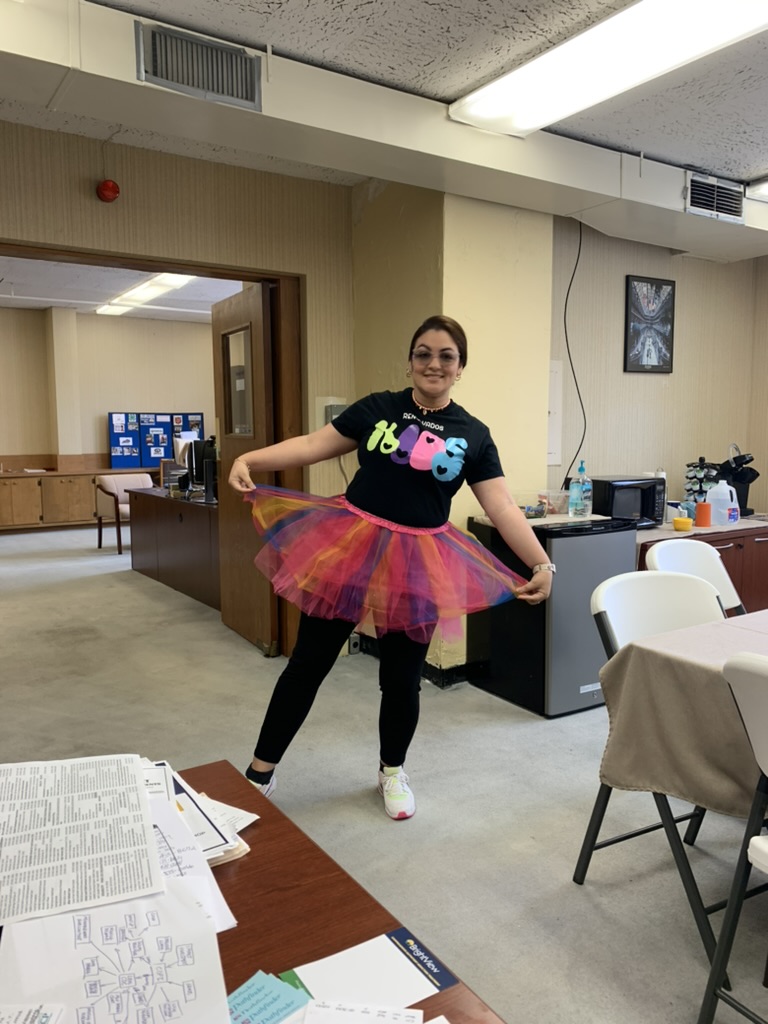

Left: ARCH CHW table at the Women's Mental Health Event. Right: One of our CHWs on the way to visit with some children.
The ARCH Coalition has a very broad vision for improving community health, prosperity and quality of life in rural western Kentucky. Our people, like our communities, are facing multiple challenges, which often makes it difficult to provide the assistance that they need. Fortunately, there is a sort of "secret weapon" to help people manage complex issues. That "secret weapon" is a Community Health Worker (CHW). CHWs are trained, front-line public health workers who are part of the community they serve. They meet people wherever they may be to help them assess their issues and to facilitate the process of addressing them. CHWs don't work in any particular field, like housing, healthcare access, or nutrition. CHWs are a bridge between people and whatever resources they may need to move forward.
CHWs have been around for decades, but they are only just now really starting to expand and become more common in our communities. Everywhere that CHWs have been tried, they have made a difference, both for their clients and the service providers in the community. CHWs not only help people improve their health and their quality of life, but they also reduce costs for the community and the service providers. When CHWs work with people, those people are better able to manage their health, including chronic health conditions, and their lives. When CHWs are involved, people have fewer ER visits, fewer hospital re-admissions, and fewer preventable medical exacerbations. This can save healthcare providers and healthcare payers (like Medicare, Medicaid, private insurers, and hospital charity care) thousands of dollars. In fact, many hospitals and insurance companies directly employ CHWs, because they have a very large return on investment, in cost savings and better patient outcomes.
Because of the great impact CHWs have on the community, the ARCH Coalition worked for several years to establish a CHW network in our region. Thanks to a grant from the Kentucky Department of Public Health, we were able to hire and train our first 3 CHWs, starting in early 2021. Two of the CHWs were to serve Hopkins County and the third, an Hispanic CHW, referred to as a Promotora, was to serve the Hispanic community, regionally. We got the opportunity to expand our network in 2023, hiring two more CHWs, one to serve Muhlenberg County and one to serve Webster County.
Being something new, our first task was to raise awareness of what CHWs are and what they can do. That turned out to be an ongoing process, reaching out to providers, nonprofit organizations, charities, churches, school family resource centers and other potential referral sources.
By early 2024, we started to really gain some momentum with our CHW network. Unfortunately, our grant ran out in May of 2024 and we were not able to find an alternative funding source, so we were forced to shut our CHW network down. This is an ongoing problem for CHW programs everywhere. They have, typically, been grant-funded, which leaves programs in a constant state of uncertainty. As healthcare providers and payers have discovered the value and return on investment of CHWs, there has been some progress in making CHW programs sustainable over the long term. The Kentucky Legislature passed a bill in 2023 to help address this sustainability issue, allowing healthcare providers to bill Medicaid for CHW services. While this was a step in the right direction, it didn't nearly address the situation. The "C" in CHW is for community and CHWs serve best when they work out in the community, meeting people in their homes and working hand-in-hand with them, not working in a clinic or provider office. We still have no mechanism in place for community-based organizations (CBOs), like the ARCH Coalition, to sustainably fund CHW networks.
The ARCH Coalition is working daily to try to find a sustainable funding source to rebuild our CHW network and expand it throughout the region on a permanent basis. CHWs have a huge return on investment, saving much more money than what they cost, and they help people live healthier, happier, better lives.
If you want to help make a real difference in your communities, one really great way would be to contact your government representatives at the local, county, state and federal level, as well as your healthcare providers and payers and tell them that they should support sustainable funding for CHW programs.
This is something that is going to happen. Adding CHWs to any community is a no-brainer. Healthcare providers and CMS, the Center for Medicare and Medicaid Services, which is the agency that runs those programs) have been pushing for years for what is called "Value-based care", which is part of a better model for healthcare, based on keeping people healthy, as opposed to the model we currently use, which is called "fee-for-service" or "episodes of care". Under our current model, we basically wait for people to get sick, ending up in a physician's office or an ER before we do anything. This model is very inefficient, very expensive, and leads to poorer outcomes than a patient-centered, value based care model. CHWs are a perfect instrument to make value-based care work. It's going to happen. The question is, "how long are we going to have to wait, how many bad outcomes are we going to have and how much more money are we going to waste before we do what we know needs to be done?"